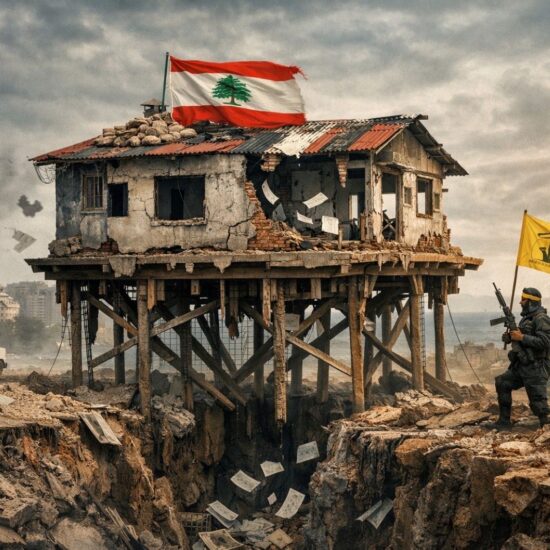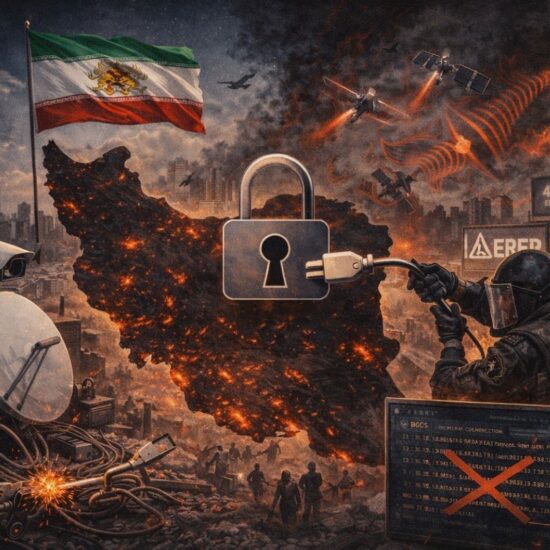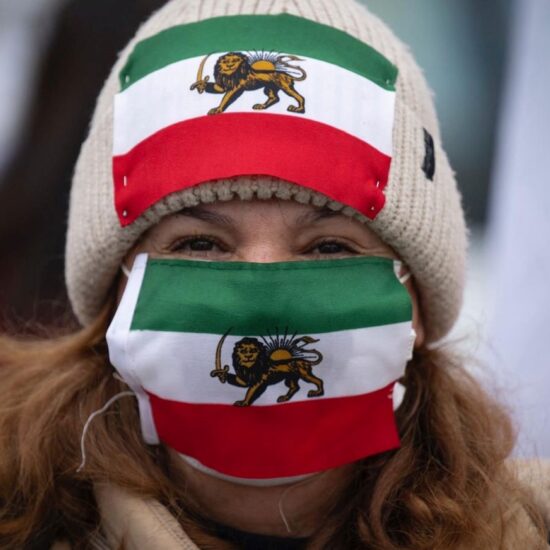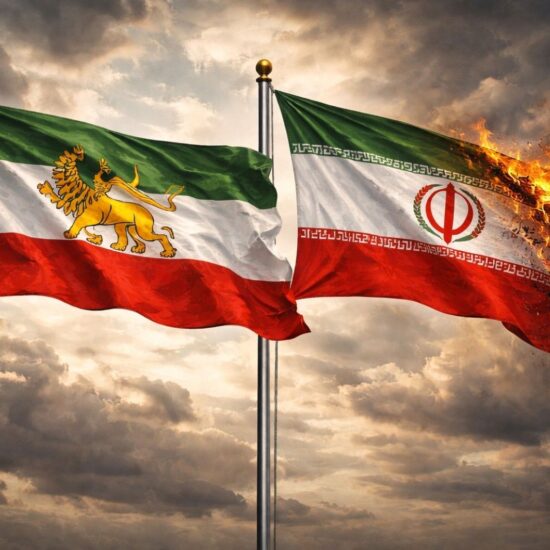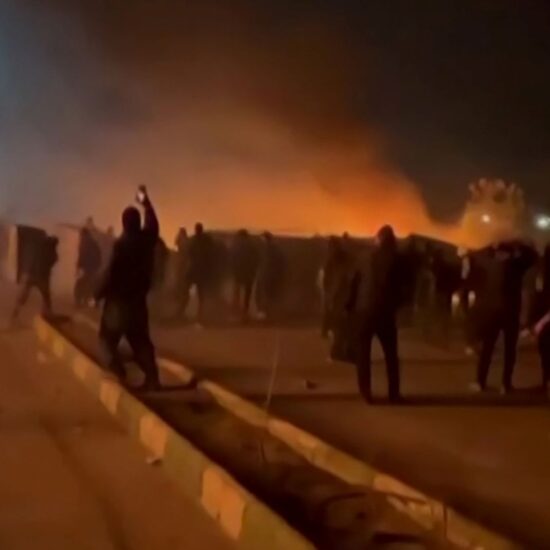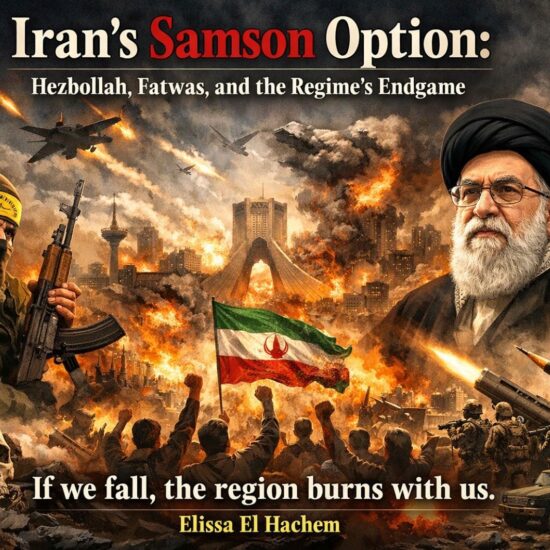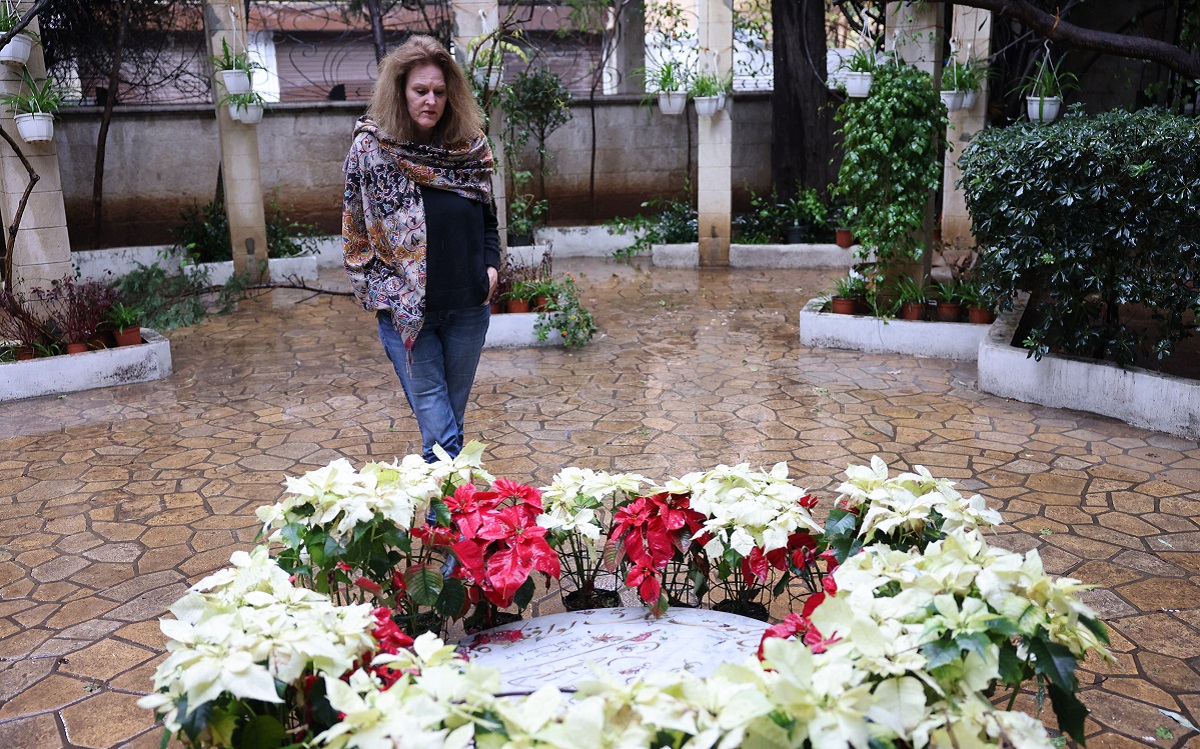
Familiarity is what drove me to their home.
One year ago, hours after learning of another political assassination, and another family’s permanent scars.
I did not know Lokman Slim personally. His wife, Monika Borgmann, told me of a brief moment many years ago where they saw me on a date in Badaro.
They apparently left me alone in hopes my dinner would turn into more…I wish they had intruded.
I encountered Lokman regularly on Twitter, and I watched him – like many of us did – on television screens and across news outlets after the port blast. His unequivocal tone against the group he accused of indirect involvement in storing ammonium nitrate meant he was going down a road with no return.
The vandalism began outside of his home, in Haret Hreik. Posters cursing and accusing him and his family of collaboration and treason. He eventually crossed a security line that Hezbollah never tolerates and challenged their position as the undisputed sub-state actor.
Determined and defiant, until he died.
My own father, and eleven others before him beginning on February 14, 2005, also paid that ultimate price. If you include the failed attempts at ending other lives, the number nears twenty.
Targeted killings, the majority successful. Lokman was executed with bullets to his head.
My own father was murdered in a car bombing near Starco, in downtown Beirut, less than a minute from his office near the Grand Serail. The most monitored part of the country, with layers of security at every corner.
And all of those layers could do nothing to confront the last militia in post-civil war Lebanon. A proxy that shields itself through local panderers and funds its arsenal through a regional sponsor hellbent on maintaining permanent battlefields.
“Where is the investigation?”
I – like Monika, Lokman’s sister Rasha al Ameer and his mother Salma Merchak, get asked the same question repeatedly. “Where is the investigation?” I have navigated my answer both friendly and bluntly, depending on which side of the bed I wake up on.
Citizens cannot yield justice. It is not the victims’ responsibility to seek inquiry and investigation, let alone interrogation and conviction. That is the role of the state, not lawyers lacking the tools necessary to confront our system, nor politicians without agency.
The configuration we all depend on to live a reasonable life, without fear of losing loved ones to violence, is hijacked, guaranteeing repeated assassinations turn into commemorations than criminals behind bars. The sovereignty we lost in 1970 and could not recover under Syrian tutelage in the 1990s turned us into a nation held hostage, with the last militia in this country preserving an ever-paralyzing status quo.
Lokman Slim’s family cannot deliver justice. It is not their task. Grief and mourning is a private affair, while judicial autonomy is the state’s domain. And whenever the future of this so-called country is discussed, in every conversation among pundits; in every panel among think-tank experts and academics; in every outlet where local and foreign press look for stories to sell and soundbites; in every moment spoken about the reasons this country is failing, our lost foundation must remain the focus.
Lokman Slim’s family cannot deliver justice. It is not their task. Grief and mourning is a private affair, while judicial autonomy is the state’s domain.
Economics, corruption, sectarianism, social pact reform, decades if not centuries of conversations on colonialism…even a measure of historical revisionism is fine. But shying away from sovereignty is a fools’ errand. And that hesitation should not extend to diplomats when they refer to accountability.
Why am I taking the conversation there? Because there are no answers to Hezbollah in Lebanon, from protestors on the street demanding change for seventeen years, to reform-minded individuals that enter the halls of power. Elections will not erase this existential problem. Neither will changing the system from sectarian power-sharing to secularism.
We are not a state born in error, despite all of the shortcomings power-sharing through consensus and consociationalism-governing through compromise brings to society.
We are a battered state. And reform is essential, not overnight overhaul while ignoring the collateral political violence brought to this country.
The answer to ending our violent nightmare is – unfortunately – beyond our borders. Lebanon’s collapse overlaps with Iran’s security interests, and has nothing to do with sociological or anthropological factors or cross-communal conflict resolution endeavors.
A recent World Bank report that hones on political elite negligence, rampant corruption and waste of time lexicon without confronting the core problem cherrypicks the story. And despite the emotion and eloquence offered at the French ambassador’s residence two weeks ago when delivering a Franco-German human rights award to Monika Borgmann, not a word was uttered by any diplomat against her late husband’s killers.
In my discussions with a variety of officials that claim to communicate with the Iranians, there is an obvious reluctance towards making Lebanon’s case. And if comfort is allowed when searching for familiar pain, it is by accepting that international actors avoid issues that do not affect them.
Beirut – and the region’s capitals – are not special.
Budapest tried upending Moscow’s military and security influence in the 1950s for weeks on end to no avail. Prague pursued a similar path in the 1960s and was crushed within days. Warsaw began protesting in Solidarity in the 1980s on a weekly basis, later joined by East Berliners, against their status quo.
Despite the emotion and eloquence offered at the French ambassador’s residence two weeks ago when delivering a Franco-German human rights award to Monika Borgmann, not a word was uttered by any diplomat against her late husband’s killers.
Continued protests and activist attempts across central and eastern Europe that challenged the Soviet Union’s security parameters, ultimately met with clampdowns and assassinations.
Countries opposed to Moscow’s policies made the same types of pleas in parallel to deals made with that regime. The same goes for dealings with Tehran.
Nothing changed until late November 1989, when a Soviet leader decided to disengage from unrest beyond his borders, thereby turning the page on half of a continent’s political future. The same week that the Taif Agreement sealed our own fate, with our own sovereign parameters defined by Syria. And more recently, Iran.
Lokman Slim, like my father before him and the long list of journalists, intelligence officers, politicians, diplomats and all victims of political violence face familiar terrain. Soviet sphere heroes of yesterday are ours of today.
Monika Borgmann, upon receiving her human rights award from the French ambassador and in her own eloquent way, spoke of Lokman’s assassination in an area less than a kilometer from a French military administered UNIFIL post, meant to enforce UNSCR 1701 – a resolution designed to dislodge Hezbollah’s armed position from southern Lebanon. She also told a representative from the German embassy that a united Germany (Monika’s native home) could not have moved on from wounds inflicted by two world wars, division and decades of cold war without having the sovereign tools needed to shape their destiny and reform.
Her life is one narrative that mirrors both chapters of a shared story.
And in parallel to Lokman’s own work in collective memory, history moves slowly. His family – like victims before – will have to wait.
The Iranian regime will evolve and change. One day, we will wake up to their own Gorbachev shifting course. Not a Khatami or Rouhani with façade-like presidential authority but an IRGC army commander with a preference for disengagement over endless death and disorder.
Only then will our nightmare end with reformists in charge, rather than buried beneath.
Ronnie Chatah hosts The Beirut Banyan podcast, a series of storytelling episodes and long-form conversations that reflect on all that is modern Lebanese history. He also leads the WalkBeirut tour, a four-hour narration of Beirut’s rich and troubled past. He is on Facebook, Instagram, and Twitter @thebeirutbanyan.
The opinions expressed are those of the author only and do not necessarily reflect the views of NOW.


